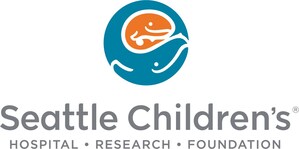Researchers Link Dental Problems in Cleft Lip and Palate to Abnormal Salivary Glands
Doctors have long observed that cleft lip and palate are linked to poor dental health, and new research points to abnormal salivary glands as a cause
SEATTLE, Dec. 7, 2016 /PRNewswire-USNewswire/ -- A new study in the Journal of Dental Research suggests that dental problems commonly associated with cleft lip and palate may be caused by abnormalities in salivary glands and an imbalance of immune compounds in the mouth.
Dr. Timothy Cox, a craniofacial researcher at Seattle Children's Research Institute and lead author, found that mice with a gene mutation that causes cleft lip and palate had problems in their salivary glands that affected gum tissue and oral health.
"We found that the cleft lip and palate gene mutation also resulted in abnormal salivary glands," Cox said. "The result was a mouth environment that was too acidic and contained excess bacteria, which led to problems in the gums and more rapid tooth decay."
In healthy people, salivary glands excrete saliva that contains protective immune compounds and balances the acidity in the mouth. The researchers found that a common cleft lip and palate gene mutation resulted in abnormal development of salivary gland ducts such that they could not properly pump the buffering liquid and protective immune compounds into the mouth.
"No one has systematically looked at salivary glands in cleft lip and patients because it is not part of the typical clinical assessment of these patients," Cox said. "We know saliva contains protective immune compounds that combat tooth decay, and researchers have also observed that some children with cleft lip or palate have different salivary composition. This is a breakthrough because doctors and dentists could use this research to develop improved strategies for managing oral health in young cleft lip and palate patients."
In the study, the researchers offered mice with the cleft lip and palate mutation and mice without the mutation a high sugar diet. After just 8 weeks on this diet, the mice with the cleft lip and palate mutation had almost no molar teeth left, while the mice without the mutation had only mild decay.
The researchers focused on the gene IRF6, the gene most commonly associated with cleft lip or palate. Many other genes have been linked to cleft lip or palate, and the researchers hope to understand if these additional genes are also associated with enhanced tooth decay.
"Doctors who treat children with cleft lip or palate have observed for a long time that tooth decay is a problem, and one that can affect their quality of life," said Dr. Michael Cunningham, medical director of the Craniofacial Center at Seattle Children's Hospital. "It can also be a financial burden on families because many kids require extensive dental care, and eventually orthodontic care."
According to the Centers for Disease Control and Prevention, cleft lip and palate is one of the most common birth defects in the United States. Each year, 2,650 babies are born with a cleft palate and 4,440 babies are born with a cleft lip with or without a cleft palate.
The next steps in the research include studying salivary composition in cleft lip or palate patients, as well as additional genes associated with cleft lip or palate to determine if they contribute to abnormal development of the salivary glands.
"We hope that as the research progresses, doctors and dentists can apply the findings in caring for cleft lip or palate patients and protect their teeth starting in early childhood and into adulthood," Cox said.
About Seattle Children's
Seattle Children's Hospital, Foundation and Research Institute together deliver superior patient care, advance new discoveries and treatments through pediatric research, and raise funds to create better futures for patients. Consistently ranked as one of the top 10 children's hospitals in the country by U.S. News & World Report, Seattle Children's Hospital specializes in meeting the unique physical, emotional and developmental needs of children from infancy through young adulthood. Through the collaboration of physicians in nearly 60 pediatric subspecialties, Seattle Children's Hospital provides inpatient, outpatient, diagnostic, surgical, rehabilitative, behavioral, and emergency and outreach services to families from around the world.
Located in downtown Seattle's biotech corridor, Seattle Children's Research Institute is pushing the boundaries of medical research to find cures for pediatric diseases and improve outcomes for children all over the world. Internationally recognized investigators and staff at the research institute are advancing new discoveries in cancer, genetics, immunology, pathology, infectious disease, injury prevention, bioethics and much more.
Seattle Children's Hospital and Research Foundation and Seattle Children's Hospital Guild Association work together to gather community support and raise funds for uncompensated care, clinical care and research. The foundation receives nearly 80,000 gifts each year, from lemonade stand proceeds to corporate sponsorships. Seattle Children's Hospital Guild Association is the largest all-volunteer fundraising network for any hospital in the country, serving as the umbrella organization for 450 groups of people who turn an activity they love into a fundraiser. Support from the foundation and guild association makes it possible for Seattle Children's care and research teams to improve the health and well-being of all kids.
For more information, visit seattlechildrens.org or follow us on Twitter, Facebook and Instagram.
Contact:
Hanady Kader
206-987-5752
[email protected]
SOURCE Seattle Children's Hospital
Related Links
WANT YOUR COMPANY'S NEWS FEATURED ON PRNEWSWIRE.COM?
Newsrooms &
Influencers
Digital Media
Outlets
Journalists
Opted In




Share this article